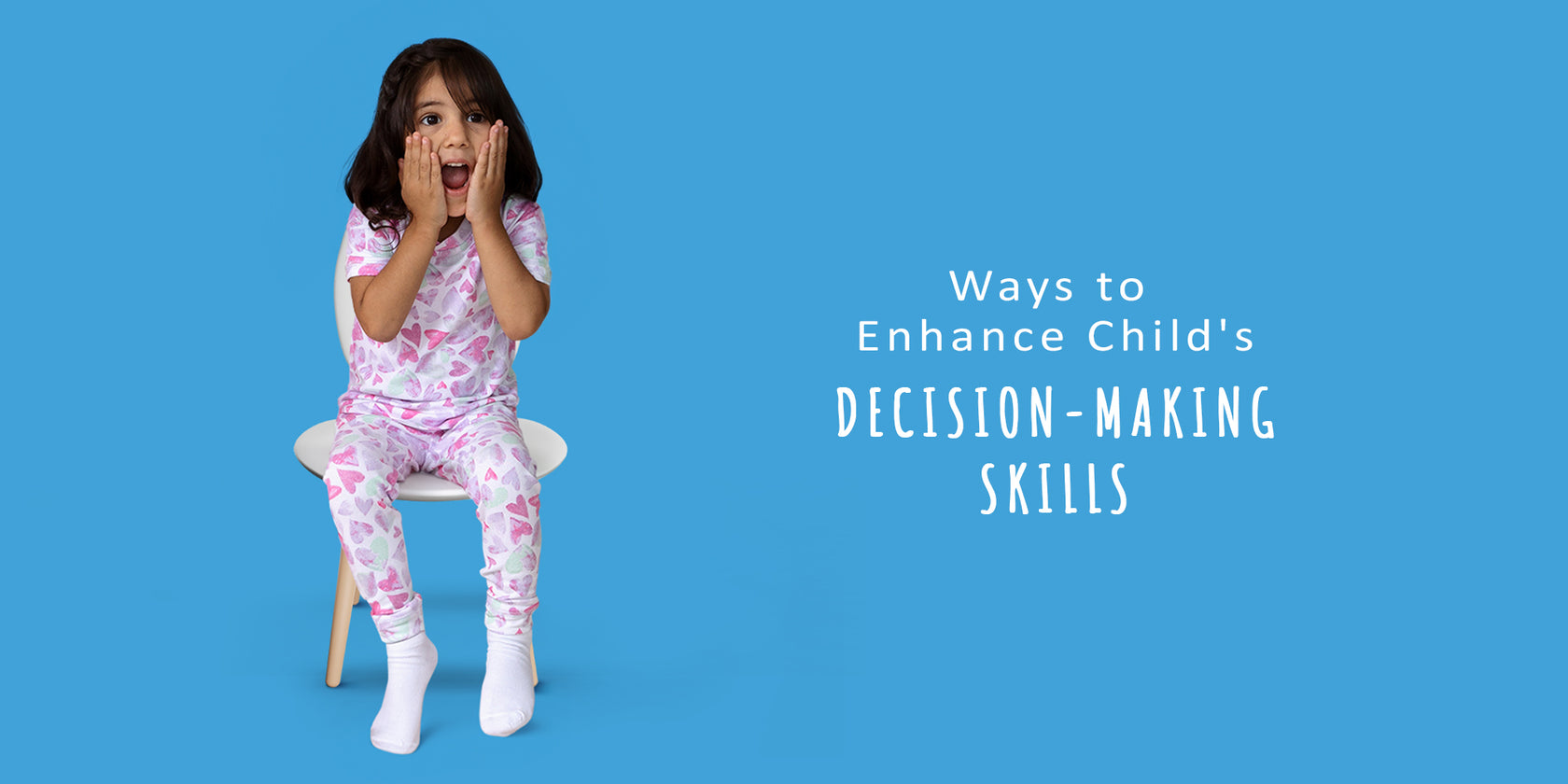Decision-making
What exactly is decision making? Think of it as the ultimate brain game where you weigh options, predict outcomes, and make the call. But, hey! deciding can be tricky, especially for kids feeling the decision jitters. Luckily, there are tons of fun ways to help them become decision-making champs! So, when's the perfect time to start crafting those epic decision-making skills?

When to start building decision-making skills
The earlier you start, the better. As adults, we have to make decisions, and our years of experience with choosing right and wrong is reflected in decisions we take every day. Children, particularly those in their early years, often lack the resources to make rational judgments and have limited options. Allowing children to make small decisions helps them in analyzing possibilities, balancing benefits and drawbacks, and get them ready to make huge decisions.
What are the benefits?
Teaching children to make decisions has several advantages. First, children taught to make wise choices have more confidence in overcoming challenges. They can excel in every aspect of their lives with this confidence.
Making decisions also teaches children to accept accountability and take responsibility for their actions. They learn from this the value of making deliberate decisions and the effects they can have on themselves and others. Also, children are less likely to make snap decisions that they will regret if they are taught to weigh the pros and cons of their options.
So, what can you do to help your little one?



1) Let kids choose for themselves!
Transform decision-making into a fun game for your kids! Let them choose between an apple or a banana for a snack, decide when to tackle homework. Introduce alternatives for bedtime or weather to wear sleep on its adorable Floral Mint Green pajama set or the fierce Cheetah Print set. Offering alternatives makes the whole process more enjoyable and boosts their confidence!
2) Encourage critical thinking
Don't jump in when they make a wrong decision. Promote critical thinking skills by collaborating with them to generate ideas and motivating them to consider the advantages and disadvantages of every possible solution. For example, help them weigh the pros and cons, like choosing between buying a LEGO or going to the movies with friends using their $10 pocket money. Playing games like chess that require strategic thinking and problem-solving. It not only enhances cognitive abilities but also helps children develop their skills.
3) Model good decision-making
Turn decision talks into a family adventure! Dive into household decisions together, like picking a new car or saving for holidays, adding a list of items to the grocery list, and buying them with their pocket money that will help them prioritize. Make it a fun and insightful journey for them to understand the secrets of smart decision-making!
4) Help them learn from mistakes
Turn oops moments into a learning experience! When kids goof up, like forgetting to clean their room or arriving home late, make it a fun chat. Discuss what went sideways, brainstorm for better choices, and giggle together about the consequences. It's all part of the journey to smarter decision-making!
5) Encourage goal setting
Help your child uncover the superpowers of setting goals by defining what matters most. Explore the options available, weigh the pros and cons, and watch as they make choices aligned with their objectives. The game of life can be a good choice to teach kids about goal setting. Players must choose their education, careers, and relationships, which directly impact their outcome in the game. It also teaches players to take risks to achieve their goals.

6) Encourage kids to explore new things
Encourage your kids to be risk-takers. Show them the thrill of trying new things and taking calculated risks, even if they don't always pan out. Through these daring escapades, they'll make better decisions and collect lessons from their experiences! Playing games like Monopoly that involve buying, selling, and trading property. They must decide which properties to buy, how much to charge rent, and when to trade properties. The outcome of the game depends on the choices they make. Which will not only allow them to take risks but also know the consequences of their choices






